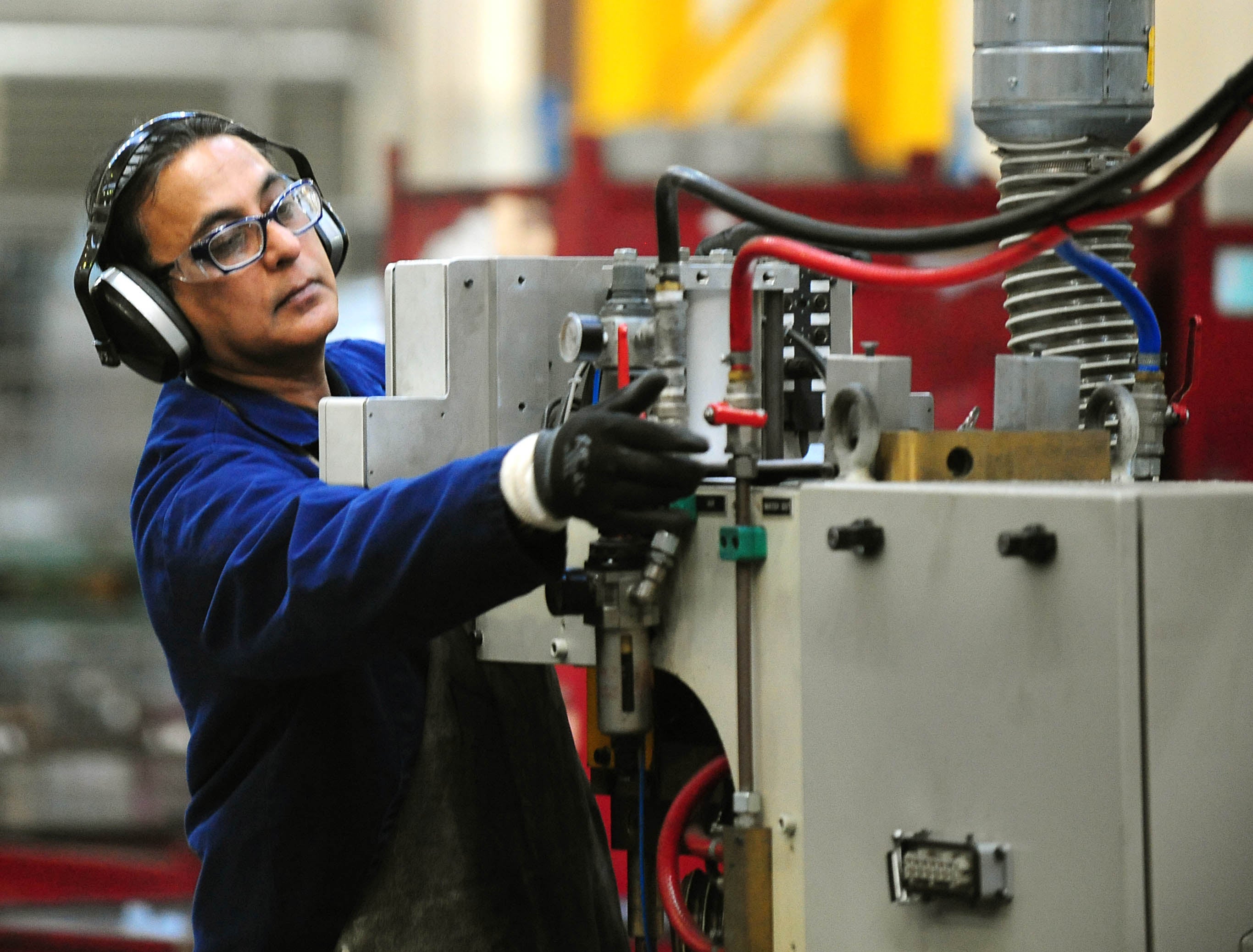Manufacturing growth lowest for two years as output stalls
Companies said they were getting less new work and demand was weakening.

Your support helps us to tell the story
From reproductive rights to climate change to Big Tech, The Independent is on the ground when the story is developing. Whether it's investigating the financials of Elon Musk's pro-Trump PAC or producing our latest documentary, 'The A Word', which shines a light on the American women fighting for reproductive rights, we know how important it is to parse out the facts from the messaging.
At such a critical moment in US history, we need reporters on the ground. Your donation allows us to keep sending journalists to speak to both sides of the story.
The Independent is trusted by Americans across the entire political spectrum. And unlike many other quality news outlets, we choose not to lock Americans out of our reporting and analysis with paywalls. We believe quality journalism should be available to everyone, paid for by those who can afford it.
Your support makes all the difference.Output from the UK’s manufacturing sector has started to shrink for the first time since the early pandemic days, a survey has suggested.
Companies said they were getting less new work and demand was weakening, all while they grappled with supply chain problems.
It meant that last month the S&P Global/CIPS UK Manufacturing Purchasing Managers’ Index (PMI) hit 52.1, down from 52.8 in June.
The index was still in growth – anything above 50 is considered to show an expansion – but only because of faster jobs growth and rising purchase stocks.
On the output side it was the first time since May 2020 that the sector had contracted, mainly due to consumer and intermediate goods.
Intermediate goods are products that go into making consumer goods, which are the final items sold to regular customers.
Businesses reported the cost-of-living crisis was contributing to the drop in new orders. They also blamed domestic demand, client uncertainty, warmer-than-usual weather and reduced exports.
Demand from abroad fell for the sixth month in a row, in part due to Brexit problems.
“The UK manufacturing sector shifted into reverse gear at the start of the third quarter,” said Rob Dobson, director at S&P Global Market Intelligence.
“Output contracted for the first time since May 2020, as new order intakes suffered the first back-to-back monthly decreases for two years.
“Rising market uncertainty, the cost-of-living crisis, war in Ukraine, ongoing supply issues and inflationary pressures are all hitting demand for goods at the same time, while lingering post-Brexit issues and the darkening global economic backdrop are hampering exports.”
He said more pressures could arise as the Bank of England continues to hike interest rates to combat inflation.
However, there are signs in the data that costs are no longer increasing as fast as they had been, which could provide a welcome break for companies.
Duncan Brock, group director at the Chartered Institute of Procurement & Supply, said: “Output from the consumer goods sector went into contraction along with new orders, and the signs show this trend will continue towards the autumn months.
“A reduction in the level of new orders from domestic customers clearly showed that the pressure of cost-of-living rises for basics such as fuel and energy made consumers think twice about non-essential purchases.”